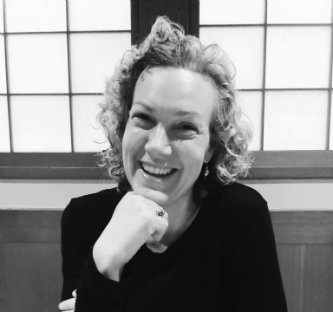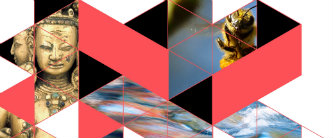A dialog on karma
Annabella Pitkin, Buddhism scholar and Lehigh assistant professor, will join animal rights activist and Princeton philosopher Peter Singer at 6 p.m. Sunday, Nov. 15, at The Rubin Museum in New York City for a dialogue on karma, the Buddhist principle that all actions have consequences, good or bad.
"Karma: Cause and Effect and the Illusion of Fate" is part of a conversation series hosted by The Rubin this fall that examines the repercussions of people’s actions, with a focus on mankind’s effect on the climate.
“Karma has always been one of the most fascinating topics within Buddhism for me,” says Pitkin, assistant professor of Buddhism and East Asian religions. “During the years I lived in Tibet, and over the time I traveled in India, Nepal and China, I noticed many ways that karma gives people resources to cope with hardship and adversity.”
Pitkin will discuss with Singer his approach to ethics, how to help the greatest numbers of people and animals and how to relieve the most suffering.
Pitkin, whose current book project is titled Beggar Modern: Modernity, Renunciation, and Love in the Life of a 20th Century Tibetan Buddhist Saint, will connect Singer’s approach to ethics to Buddhist beliefs about community, responsibility and moral action.
Buddhists often refer to karma as the law of cause and effect, a natural force like gravity.
“Personalities from many walks of life will step on stage at The Rubin to share their views on global warming as well as other implications of karma and fate,” Pitkin says about The Rubin’s conversation series.
“The museum has one of the world's most dazzling collections of Himalayan Buddhist art, plus special works from China, Japan, and elsewhere. They often host musicians, artists, and film makers speaking on Buddhism and related topics.”
Posted on:



